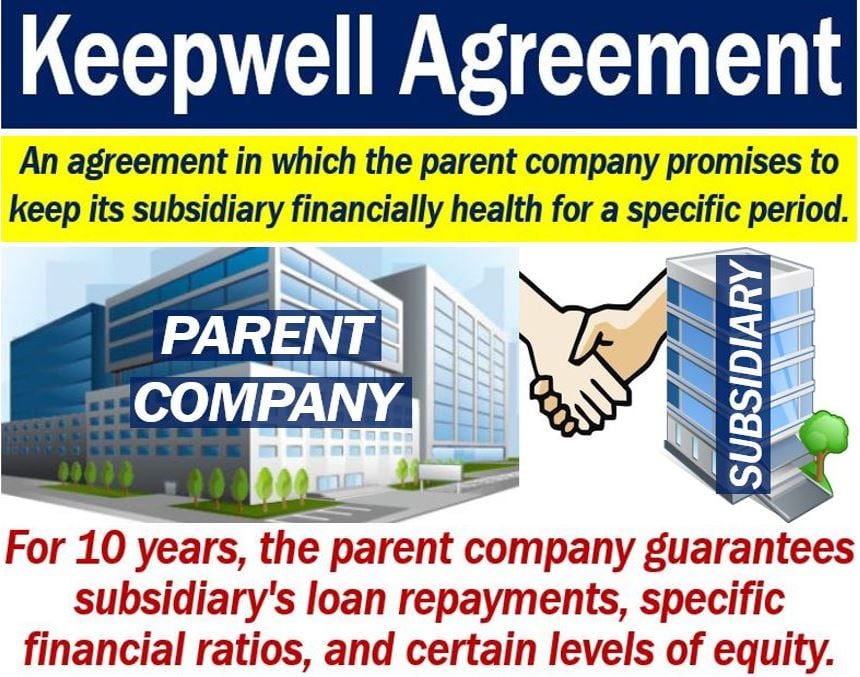A keepwell agreement is an agreement between a parent company and one of its subsidiaries. The parent company commits to provide all the subsidiary’s financing needs.
A keepwell agreement specifies how long the parent company will guarantee financing for the subsidiary. This type of contract helps the subsidiary with lenders. In other words, lenders are more likely to approve loans for the subsidiary if it has a keepwell agreement.
A subsidiary is a company that is at least 50% owned by a parent company.
Not only banks and other lenders of money but also suppliers are more likely to offer favorable terms. If the subsidiary wants 90-day terms and there is no keepwell agreement, the supplier is less likely to approve. It is less likely to approve if the subsidiary has a bad credit history or is a new client.
Put simply; the contract enhances the subsidiary’s creditworthiness. Creditworthiness is an entity’s ability to borrow and pay back, i.e., how much lenders think it is good for.
We can write the term either as two or three words, i.e., either keepwell agreement or keep well agreement.

Keepwell agreement – example
Let’s suppose Company A is the holding company and Firm B is a subsidiary. ‘Holding company’ means parent company.’
It has been a hard year for Firm B, which makes mobile telephones. However, Firm B wants to break into the Chinese market.
It needs money to build a factory near Shanghai. In fact, it needs to borrow $1 million. However, on its own, Firm B represents a significant risk for lenders. It cannot get a loan for less than 17% interest.
At a rate of 17%, the loan repayments would significantly undermine Firm B’s chances of success.
Firm B asks Company A for a ten-year keepwell agreement. In the contract, Company A will keep Firm B solvent and financially stable for one decade.
Company A agrees, and they both sign the agreement. Firm B’s creditworthiness is now considerably greater than it was before. It can now get a loan at much lower interest rates.
Subsequently, its chances of success in China are considerably greater thanks to the keepwell agreement.
Keepwell agreement – issuing bonds
The subsidiary may draft a keepwell agreement as a form of credit enhancement for a bond. The parent company agrees to keep the subsidiary in good financial health. In this case, the subsidiary is the issuer of the bond.
The parent company may, for example, guarantee to maintain certain financial ratios. It may also make sure the subsidiary has certain levels of equity.
However, according to Bond Supermart, keepwell agreements are not legally binding, unlike a proper guarantee.
